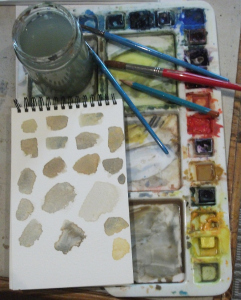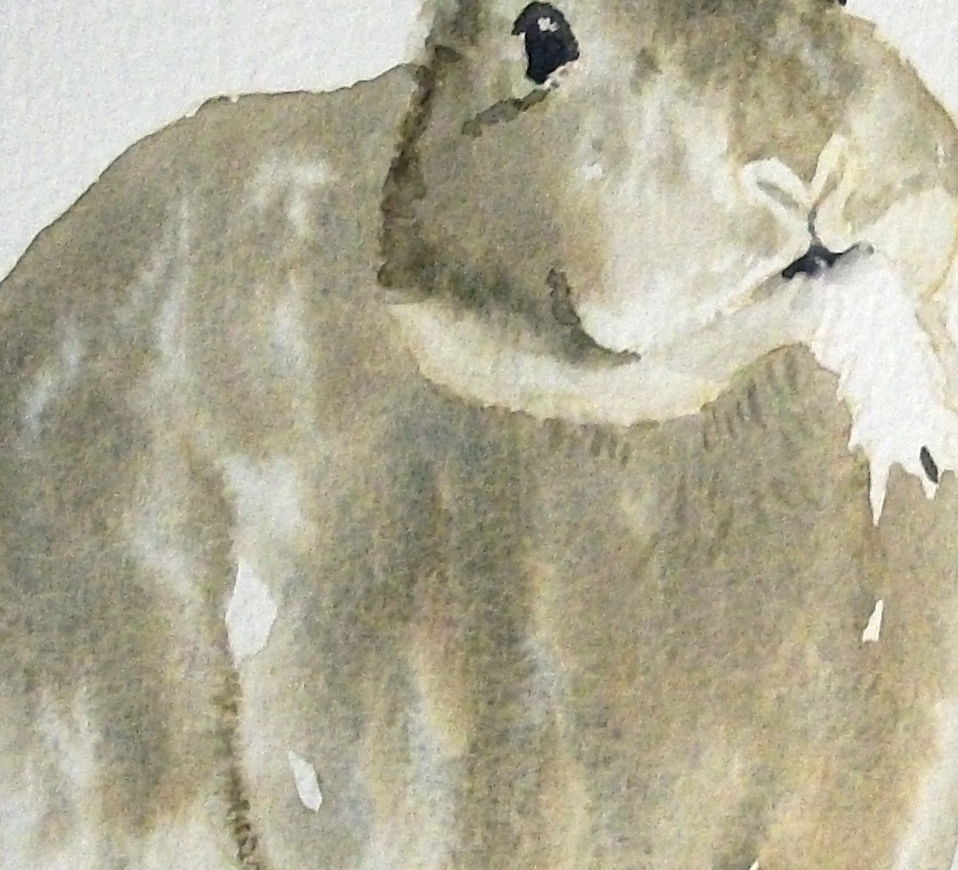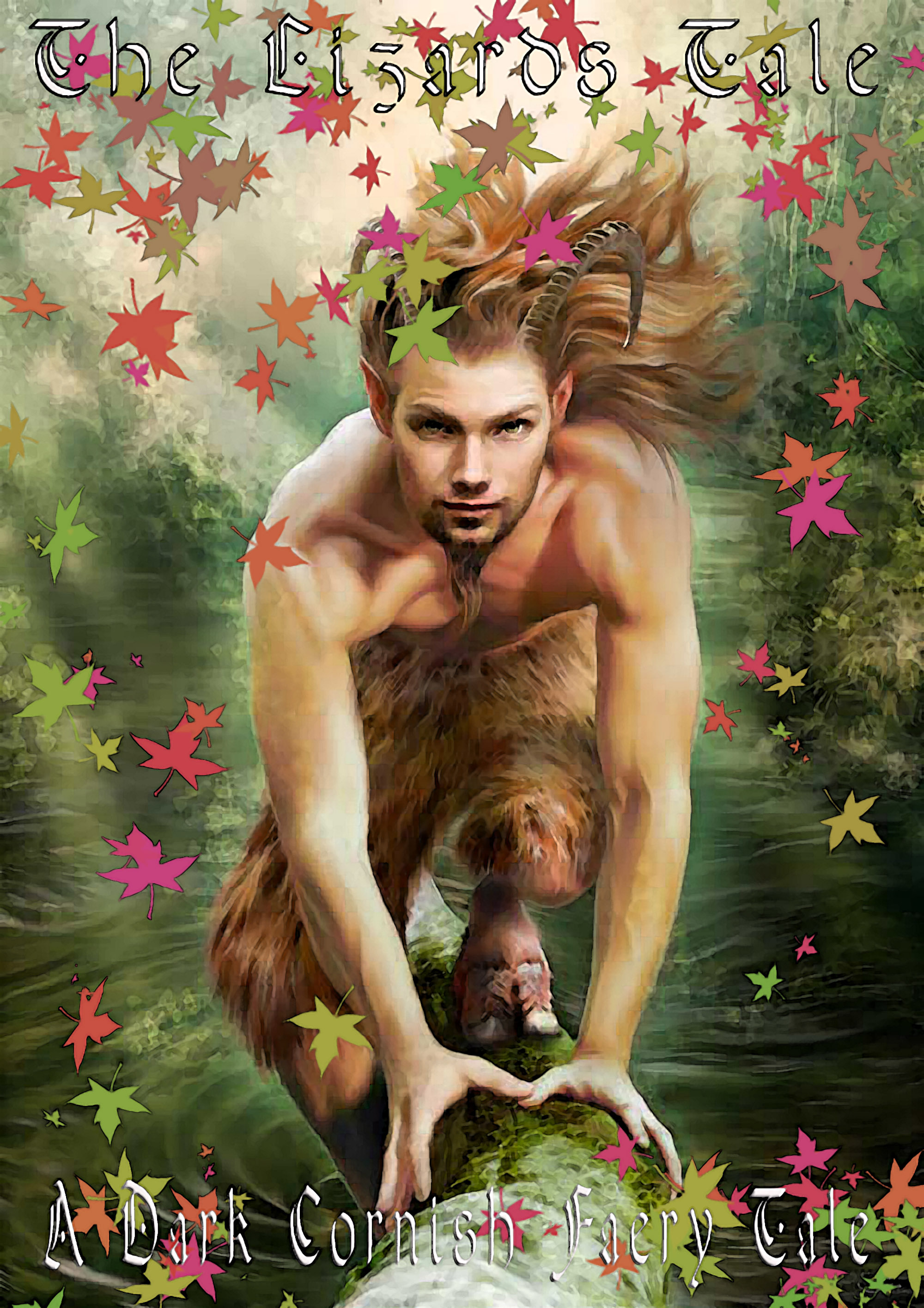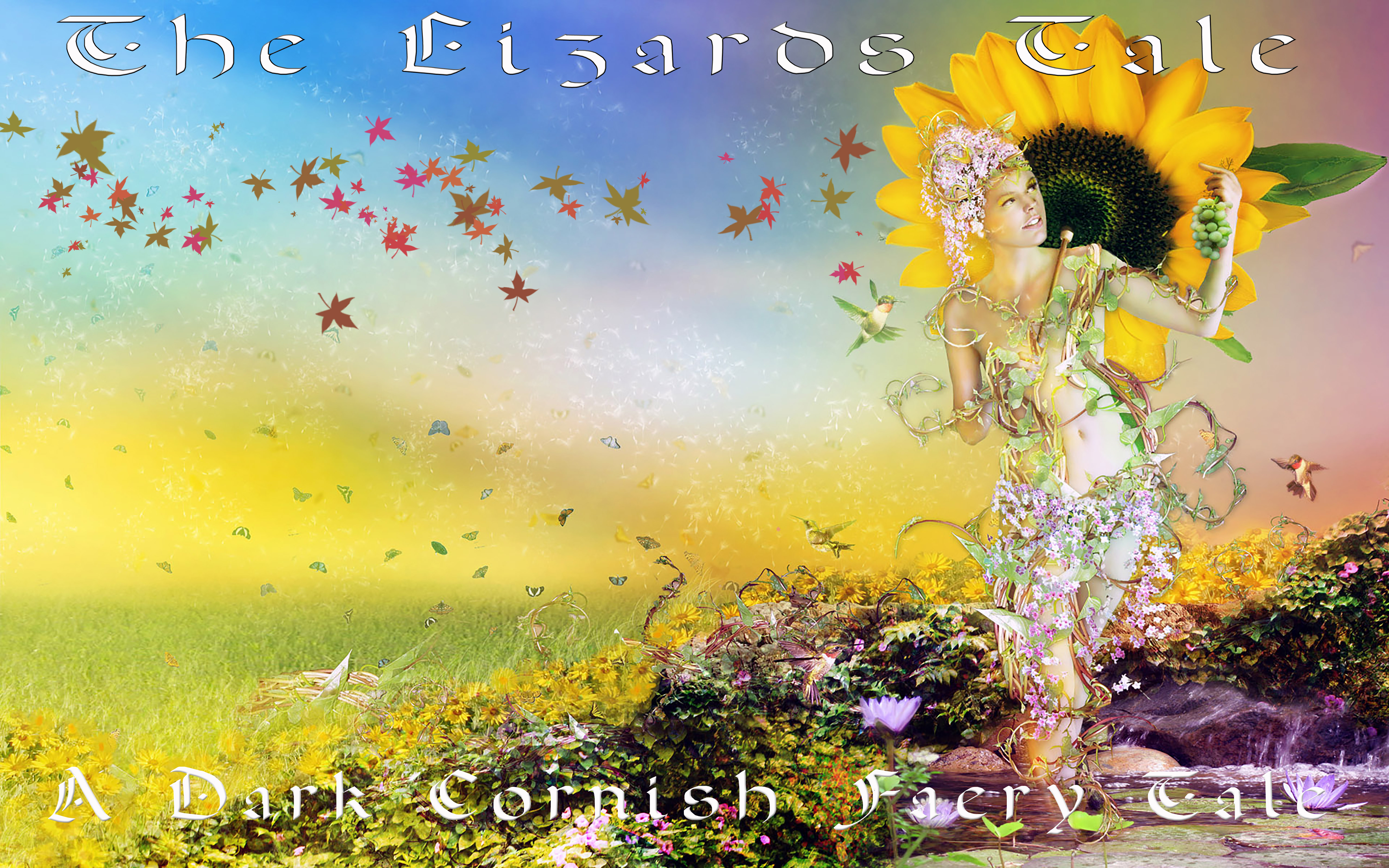
Chapter One.
The Sea is bewitched.
The waters on the foreshore rumbled and rushed, sending tendrils of iridescent foam landward, before streaming back to the main body of the sea. The constant cacophony of the rolling waves, the sands incessant grinding under the oceans action, made it almost impossible for the beachcomber to hear the Isles breeze that whistled about his woollen cap. Clothed against these frigid elements, he’s posed in a well-worn black pea jacket, beneath which resides a tattered Harris tweed suit with accompanying Isles jumper. His inner jacket is tucked away into his trousers which are covered by oil skin pants that buckle to his shoulders, stout oily hand knitted socks cover his feet which are rammed down securely inside battered sea boots. His jacket collar raised, coat toggled firmly shut, his powerful muscular neck rises from an old rough woolly scarf to a thrusting chin, firm mouth, blunt nose, and glowering brow ridges covered with greying twisting eyebrows.
On his right side the white sanded dunes, on the left the lively sea, and as he progressed along the no man’s land between dry land and the deep, his eyes constantly flickered over the sands in front of him and the restless surf. His eyes the colour of late winter briny, blue green with the merest hint of a sparkle which just maybe came from the winds driven salt causing an occasional tear to form at the corner of his eyes. Over years of this his ongoing journey, his skin had leathered into wrinkles around his sea-coloured eyes, the texture reddened now, but later in the shelter of his Croft, his skin would dull back to its natural nut browned tone. Over the last three decades, the summer sun had written its work upon his skin, his journeys along this lonely stretch, journaled by its rays’ raising welts over his exposed frame.
His hope, his mission of a morning, to discover gifts from his mistress the sea, maybe driftwoods from distant shores, riven fishing creels, even broken boats could come ashore with weed encrusted netting at this time of year. Twigs, trunks, both tree and man-made could roll inwards upon this shore, this shore trapped between two stark blackened headlands. Often nowadays, there was much evidence of man, where years before there’d been only sea-soaked wooden artefacts, now plastic also wended through the Bladderwrack. Plastic bottles with wording in many languages, even Arabic and Chinese script were to be found amongst the flotsam and jetsam on this shore, items from currents far flung from this isolated spot. Each plastic piece is meticulously removed from the sands by his hands and placed in a rough hessian sack that the man carried. Wooden items of interest were placed almost lovingly into a knapsack on his back, the flap with its stitched leather straps fluttered up and down behind him like a flag and would continue to do so until he buckled it down at the end of his progression across the sands between the heads. He examines each wood item, and if it didn’t warrant further inspection, it would join other wood detritus that rested in small piles just out of any encroaching wave lip. Later he’d return to collect these pieces, but the prizes that he’d wrestled from the weed, these would return homewards with him when he clambered back up to his Croft that nestled in the safety of the dunes.
Then, in the calmer waters just beyond the rollers, something caught and held the combers eye, a gleaming spike that seemed to tear through the fabric of the sea, then abruptly slither back, before then gliding back once again into his gaze. Attention caught, he now avidly peers through the stinging salt spray that’s whipped from the horses’ manes of the breakers by the gusting breath of the breeze.
There, and then gone, yes there, but gone, is this some oceanic beast hunting for some prey, or the arm of a man in his last dying gasp?
He’s sighted Orcas here for seals, Basking sharks, Dolphin, and Porpoise, and once, the behemoth shape of a Leatherback turtle as it heaved like a floundering rowboat through the froth of a running tide, but this is none of these. Something lurks beyond his sight, and for a moment the thought of climbing to a higher vantage, slinks insidiously through his mind, before being cast away to the need to progress in his morning chores.
The first is his passage from headland to headland, the second, to carry the plastic to a safe dump, the third to collect the wooden detritus in his now empty bag, only then, can he return to his Croft for a well-earned smoked Haddock piece.
Nothing more does he see, no protrusion from the uneasy waters to spear with his stare, and so he returns his consideration to his routine, and as his eyes travel listless from sea to shore, there’s an object before him that wasn’t there before. Along the wavelength to the headland in front of him, there appears to be a figure stooping away from his sight. It’s a vague shape no more, a brownish hump upon the sands, it’s difficult to discern if creature, or indeed just a large mound of weed. But then it moves, a shambling gait, and there appears to be an arm that momentarily waves waist height across the tide line before it. His solitude appears broken, although in all the history of his winters, is the first interloper that he’s ever seen upon what he feels is his sands. Summer yes, occasional tourists, sometimes locals beach casting for the Codling, but other winter combers, never.
Inside his ire swells, his daily routine broken, and maybe this person is stealing what he feels is rightfully his, his trade, his job, his time, his money. For here along the tides edge, is where he finds his materials with which to carve through these long cold winter nights. For in combinations of shells, carved creatures, and natural stone, he makes his trinkets for the tourist seasons. This is how he makes his life, a paltry sum earned, just enough to buy the essentials to live through winter, but no more.
With purpose now, the man drops his sack above the tidewater, and then starts toward this interloper, as he feels, on his beach. He’ll have some words, maybe some craic, no more, for he’s sure they’ll understand his reasoning and leave him to his solitary work.
The Sea Wood.
He strides across the sands, but the nearer he gets, the further away the hump appears, the impression he gets is that it’s as though he is in a tunnel with the stranger speeding away into the distance. He knew he was walking; he feels his legs moving, his increased breathing, the angle of his back as he leaned into his stride, and yet, this had no bearing on his progress. And then he believes he hears a shout, a call from behind him, he turns, his eyes follow his track back towards the opposite headland, nothing, and then he scans the dune tops momentarily.
He sees the Marram grasses waving, can imagine their clicking and rustling as his eyes turn back to the wayward figure, and it’s gone. Turning back towards where he thought he’d heard the loud ‘Hallo’, he scans the far headland, with then further scrutiny of the dune top, but no figure or indeed figures tarry there. He returns his eyes to the nearest headland, the wind can play powerful jests, maybe the whoop had originated there. But there’s no silhouette to see, no rambling figures to call, he’s baffled to say the least, as he’d half expected to spy a local hoping for a morning catch to supplement their stores.
Blinking against the winds bite, he wipes his eyes with the back of his hand, and then walks to where he thought the apparition stood, and there in the sands, two slight impressions in the ground, slowly filling with the wetness of the sea swipe. He slowly turns on his heel inspecting the scene brought before him, there’s no sign of any figures, and he finally gazes up and over the rollers to the distant sea.
Nothing, not a thing, not a dropping Gannet or wheeling gull, the wave tops appear unnaturally clear.
Looking back over the ocean to where he’d stood and seen this vision, he once again thinks that he can see a bone white arm, which is raised up from the chilly sea. But as he cranes his neck, it disappears behind a wave, and after the wave top falls away, there’s nothing left but empty troubled waters. He suddenly resolves to leave mysterious thinking to others who like to gossip, and he returns to his hessian sack. Lifted in his grasp, he resumes his track, but now he no longer gazes out towards the horizon, not because he isn’t curious, but more that he’s marginally worried by just what he might spy.
He’s not a man of foolish fantasies, a believer in myths and local legends, but over the years he’s seen some weird and unexpected things himself, and over an odd dram, he’s occasionally heard a story from an indigenous Isles inhabitant. Tale tells at a ceilidh, were entertainment, no more, as was eating, drinking, singing, playing music and dancing, you may also find a single man with old women negotiating a suitable marriage. There’d always be vivid stories of daring do, lone fishing adventures and rescues, gruesome tales of whole fishing boats crews going down with not a survivor.
But then, there’s those rarer stories told of the lonely corners of the Isles, where mermaids lure youngsters to their graves in the deeps, or beasties rise to take their due. Scuttlebutt of sea witches and unseen forces play apart, along with fantasies of men seduced by over endowed lone succubae, which are intent on stealing the man’s soul through his seed.
Still, he’s wasted too much time on this silliness, and he’s a pragmatic man if nothing else, so now working fast, he arrives quickly at where the rocks reach down from the headland to barb the sea. Turning away from the tide, he then makes his way speedily inland to the leading edge of the dunes, here he removes his knapsack, before stashing it just a few feet up the dune’s.
For a moment he crouches so that he can catch all his breath, and then he heaves up, grips the sack filled with plastic waste, swings it up and on his back, and then with fortitude he begins his ascent of the rearing dune face. He has accomplished this climb every day for decades, but he’s older now, and has a particularly heavy sack weighing down upon his broad back today. The soft dry sands of the dunes run and slide from his feet, it’s a tricky climb, more two steps forward to one step back, and he soon feels the strain. His thigh muscles tighten painfully, his calf muscles ache, and nowadays he needs a halfway stop to ease his lungs. He pushes ever upwards until his legs feel stiff with his exertions, and it is then that he turns to look back across the surging sea, and from here, at a hundred feet, he immediately sees the nude rolling trunk of a tree in the ocean below.
Bark stripped by the action of the sea, inner wood bleached by a hotter sun than here, one branch left, which lifts and falls in the incoming rollers, as it rides the ocean just beyond the surf. This is what he mistakenly thought an arm, or some sort of sea beast, and inwardly he chuckles at his foolishness in thinking he’d seen something mysterious. However, should this large piece of driftwood make landfall on the beach below, it would be an enormous prize for him, if only he can drag it enough inland to save it from the tidewater.
He ponders, and then decided, he climbs higher, tired of this chore, once at the top, and without turning, he empties the contents of his sack down the other side of the dune. Looking down, he sees the ever-increasing mountain of plastic which he’s cleaned for the beach behind him. He knows he needs to start thinking about contacting the Isles council, having them come to remove and dispose of this rubbish, otherwise he’s going to be accused of ruining the dunes.
Turning slowly, he starts carefully retracing his steps down the side of the dunes, here if he doesn’t concentrate on his next footing, then falling and rolling down the steep sands could result in a broken leg, he paused to check what he now thinks of as his log. At the bottom, and with now an empty sack, he goes from stack to stack, and starts to fill the sack from each pile of wood that he had collected earlier.
This he feels is a much easier part of this chore, but now also he feels hungry and hurries as he wants to retire to the warmth of his Croft and lunch. All this wood, after he’s given a second peruse, will go into the hearth fire, or to power the cast iron oven, it certainly wouldn’t be wasted. Larger pieces would usually be dried, neatly stacked, and kept for next winter, if there was one thing that he’d learnt from living here, it was always be prepared.
Collected drift needed to be dry, otherwise when burnt, the rough fire hearth would fill the one room Croft with choking smoke. So, for those cold wind riven nights, he had a neatly stacked, tarpaulin covered stash, although it was mostly used for preparation of food, the dry wood burning although quicker, more hotly, if very wintry he’d use some for-heating fuel if desperate. Finally, he reaches the last pile, shoving it roughly away into his sack, he starts for the dune directly before him, from the top, it was a short walk across the sea of dunes into the hinterland to reach what he calls home.
As he climbs towards the top, and in a better mood now, he reminisces how easy it had been to collect driftwood when he first arrived here to live. It seemed that back then, that there’d been a lot more wood washed up on the shore, in fact, if he remembered correctly, it had been piled high, and that there was also so much more to be collected all year round, not like nowadays. The wood had pushed up to the dunes then, the nearest having dried over progressive warm summers.That was something else that had altered, the long hot summers had shortened until instead of warmer weather running from May until late September, it was a good year if it started in June and ended in the middle of September.
He topped the dune, it is all downhill now, and his consideration of some lunch makes his mouth water. He might have considered not only a piece, but also baking some tatties, but at the back of his mind, his ‘log’ needed some thoughts and actions now, before it might be washed away along the coast. Hopefully it would beach naturally, but even then, it would need to be saved before it might be re-floated by a spring tide, which would maybe drag it away again.
The Sea is a fickle mistress and could give and take with the same hand, she had the habit of a saucy temptress and had caught him out many times before. He’d experienced one of her contests and duelled with her when bathing on what appeared to be a calm tide, it was then that he’d encountered her treacherous nature in the form of a rip current that had come close to drowning him. Exhausted as he had dragged himself up upon the sands, and at last free from her turquoise nails that still raked at his ankles, he’d sworn he’d never match wills with her again. Of course, to ply his trade, or wrestle fish from the sea with rod and line, he knew it was only time before he’d feel her loving, but dangerous embrace and then wrestle once again with her desire. So, therefore he had no intentions of playing any tug of war with her, not unless he was well prepared and had the chance of getting the upper hand.
There among the humpback sands, a Marram thatched roof rises, the grasses have darkened with smoke and winter rains, but the inside remains dry and warm. The meandering breezing white coral and shell sands have been packed down like too much shopping in an overstuffed bag. His continual marching boots have worn an easily followed path, in places the salty earth even rises to the surface in patches of darkness.
The man follows this line, tacking securely through the sands, for here he is sheltered from the worst of winters inclement weather, the wind rattling the grasses and moaning overhead. Odd gusts still lift the fine white fragments of shell to sting his eyes in erratic moments, and to which his only real defensive act, is to squint his eyes almost shut, said grit then dusting his eyelashes, but it is still an eye watering assault. As he rounds one particularly large sandy mound, his eyes almost fast shut, he spots his hunkered house with its small deep-set windows pointing into morning.
Its stout door made from driftwood spars, dowelled, and hammered together by his own sweat and hands. The building of a whole, glowers with its gloomy shadowed entrance as he marches determinedly onwards to this his steadfast home. On reaching the harbouring of its heavy walls, it’s then he realises that he’s not brought home his real booty, that he’s left his knapsack on the ocean dunes face, and that his morning work is maybe wasted.
It’s not his way to curse, but in this moment, he lets forth such an expletive, and then turns guiltily as if he believes that there is honestly another to hear his language, but he’s alone as always. Turning back to this house’s sturdy door, he looks down at its stout doorstep, and there clearly marked out on the stone top, medium narrow set wet footprints facing inwards to the inside.
His brows knit in indignation, his calloused hand grips firmly the wrought iron handle, for even though there’s no lock to his house, who’d dare to enter in without his permission?









